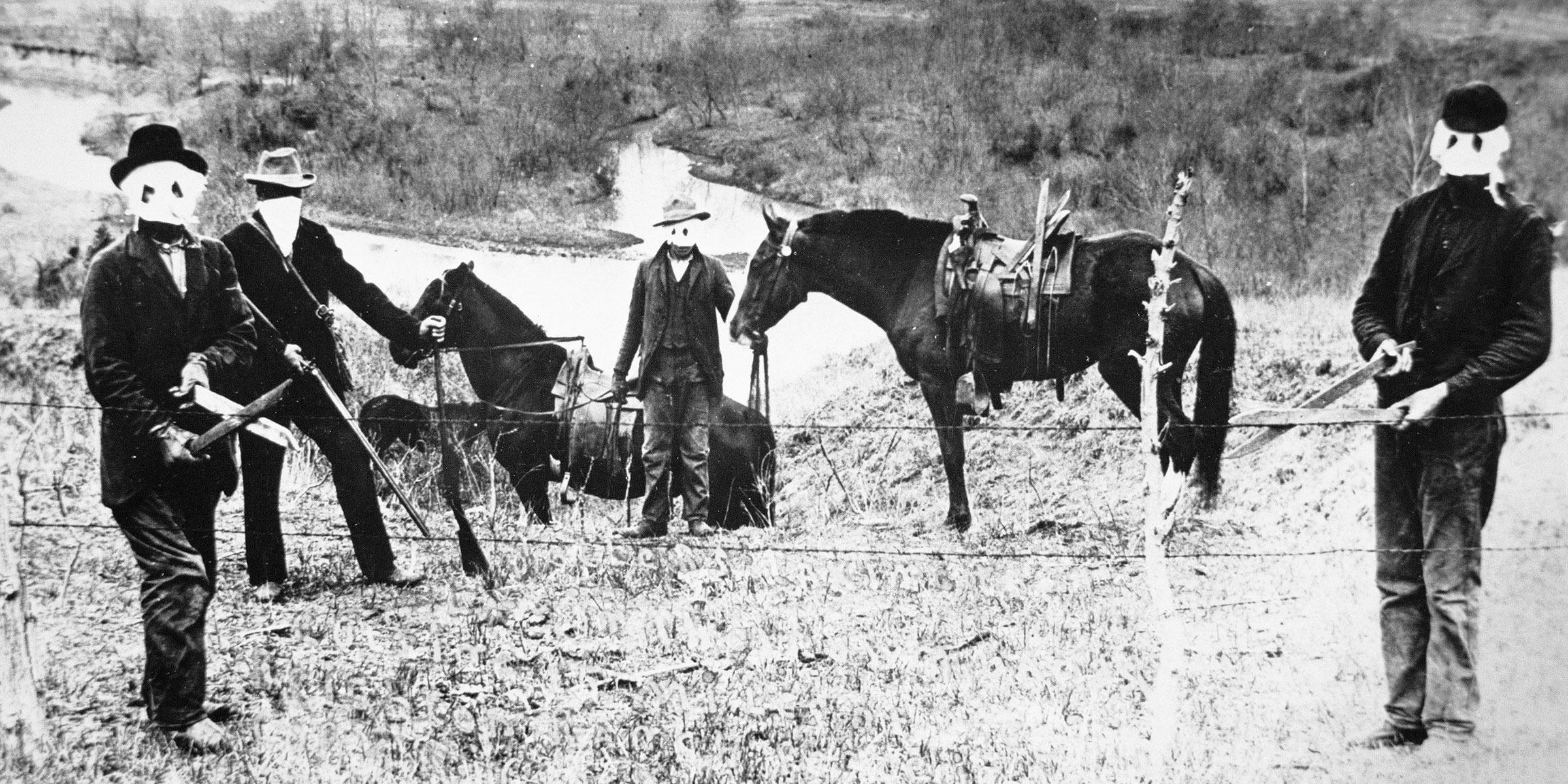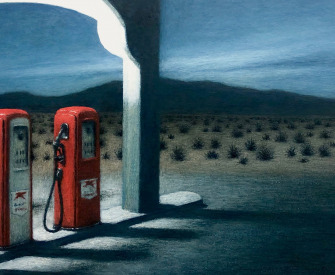No one wins a quarrel by quarreling.
—German proverb,
Combat of Naked Men (detail), by Jean Mignon after Luca Penni, 1535–55.
In the months before the opening of the Thirty-Fourth Congress in December 1855, Americans north, south, and west predicted tough times ahead. A “popular sovereignty” clause in the Kansas-Nebraska Act, which had been passed in May 1854, allowed for settlers in those territories to decide their state’s slavery status for themselves, dividing the nation into two warring factions. Kansas had devolved into violent, bloody confrontations over the question, flooding a watchful national audience with graphic images of slave-state and free-state settlers in open combat. The partisan press exacerbated the divide by peddling conspiracy theories about a brutal Slave Power—a domineering slavery-defense team that did whatever it took to stay in power—or ruthless Northern aggressors trying to seize control of the nation.
The mood in Washington was no better. Well aware that the survival of slavery and the sectional balance of power in the Union were at stake, Southern congressmen were prepared to go to the wall on Kansas’ slavery status. Meanwhile, a Northern opposition was rising in Congress, challenging the South’s long-held dominance; for decades a bloc of proslavery congressmen had strategically deployed threats and violence to cow their opponents into compliance. And as if this weren’t enough, a presidential election would take place the following fall.
In Massachusetts, Henry Wilson, a Know Nothing on his way to becoming a Republican, had dire predictions for the coming session of Congress. (The Know Nothings, a nativist movement that met in secret, eventually cohered into the short-lived American Party.) A shoemaker, schoolteacher, and newspaper editor who had entered politics in the 1840s, Wilson had spent a week in June at the American Party’s national convention, bound and determined to “blow the whole thing to hell and damnation” unless the party adopted an anti–Slave Power plank in their platform. When the party refused, Wilson led antislavery Northerners out of the convention, though not without resistance; during one of his speeches, he was threatened by a gun-waving Virginian. “The next Congress will be the most violent one in our history,” Wilson predicted. “If violence and bloodshed come, let us not falter, but do our duty, even if we fall upon the floors of Congress.”
At the other end of the Union, South Carolina Democrat Laurence Keitt drew the same conclusions. Keitt, a self-described man of “nervous irritability,” was a fire-eating extremist who was passionately protective of Southern honor. He predicted a “strong struggle” in the pending session, a chance to “marry one’s name to mighty events, to mighty measures,” and to the South’s “immortal future.” Writing from London, Keitt’s friend Ambrose Dudley Mann of Virginia agreed. Because of the Kansas-Nebraska Act, the time had arrived “when the South is compelled to measure strength with the North.” If Northerners tried to block slavery from western territories or make Kansas a free state, “it would be the duty of the South to take possession of the Capitol…and expel from it the traitors to the Constitution.”
This rhetoric pervaded the session’s election for Speaker of the House. When slaveholders began to grill Northern candidate Nathaniel Banks—another Massachusetts Know Nothing on his way to becoming a Republican—about his antislavery views, Preston Brooks of South Carolina took a stand. Resistance to Northern aggression should begin among the South’s appointed leaders in the House, Brooks insisted. “We are standing upon slave territory, surrounded by slave states, and pride, honor, patriotism all command us, if a battle is to be fought, to fight it here upon this floor.”
Despite such talk, there was no bloodshed during the speakership contest, though there were uproars aplenty and two assaults, both against members of the press. In December, Virginia Democrat William “Extra Billy” Smith—so called because of the extra fees he raked in as a government contractor—assaulted Evening Star editor William “Dug” Wallach for calling him a Know Nothing in his paper. Although Wallach routinely carried a “big knife with which to settle such little controversies,” the two men did little more than scratch and claw each other, though one of Wallach’s fingers was “catawampously chawed up” by Smith. (Noting the incident, the British foreign minister warned the folks back home that no foreign minister should ever—under any circumstances—go down to the House floor; congressmen were too dangerous.) A few weeks later, when the New-York Tribune denounced Arkansas Democrat Albert Rust for trying to disqualify Banks for the speakership, Rust assaulted the Tribune editor, Horace Greeley, twice, first punching him in the head on the Capitol grounds, then hitting him with his cane near the National Hotel a short while later. (Rust must have been contemplating a duel because, before striking a blow, he asked Greeley whether he was a noncombatant.) Greeley did as many embattled Republicans would do for years to come, portraying himself as a heroic enemy of the Slave Power. “I came here with a clear understanding that it was about an even chance whether I should or should not be allowed to go home alive,” he wrote in the Tribune. Even so, he claimed, he would stay true to the cause, refusing to run even “if ruffians waylay and assail me.”
It took two months and 133 ballots to resolve the election, but ultimately, something remarkable happened: the House elected an antislavery Northern Speaker. Banks’ election was a shocking victory for the nascent Republican Party. When it was announced on the evening of February 2, 1856, the Republican side of the House erupted in a shout of triumph followed by hearty handshakes and heartfelt embraces. The stalwart Republican Joshua Giddings of Ohio, the oldest House member with unbroken service, was given the honor of administering the oath of office. “Our victory is most glorious,” he wrote home the next day. “I have reached the highest point of my ambition…I am satisfied.”
Even in victory the Republican press predicted trials to come. “There is a North, thank God; and for once it has asserted its right to be a power under the Constitution,” cheered the New York Times. “We shall see whether or not the North can take care of the Union.” Such concern was well-founded, given the feelings of at least some Southerners, as reflected in a letter to Speaker Banks. Not long after his election, he received a two-page string of insults signed “John Swanson & 40,000 others.” Condemning Banks as “a poor Shit ass trator tory Coward,” Swanson told him to “Quit the US God damn you and your party if you don’t like us.” (And in a sentence that raises interesting questions about Swanson’s image of hell, he swore that “Hell is full of Such men as You…So full that their feet Stick out at the Window.”) Banks must have been amused, or at least struck, because he saved the letter. Doubtless it wasn’t his only piece of hate mail.
A few months after the Speaker race, violence spilled onto the Senate floor: on May 22, 1856, Democratic representative Preston Brooks of South Carolina caned Republican senator Charles Sumner of Massachusetts. The theater of the moment makes it hard to forget: the abolitionist Sumner giving a flaming antislavery speech that spewed bitter invective at three slaveholding senators; Brooks, the enraged kinsman of one of those senators, entering the Senate, finding Sumner seated at his desk, and violently beating him to the ground, breaking his cane over Sumner’s head with the fury of his blows. It was a stunning attack that sent shock waves through the nation.
But as violent as it was, Sumner’s caning wasn’t shocking only because it was violent. It was the nature of the caning’s violence, its timing, and its connection to swirling conspiracy theories that gave the assault its full sectional punch and national impact. That impact, in turn, profoundly affected public expectations of congressmen, and in so doing changed the workings of Congress.

Farmer-homesteaders cutting the fences of cattlemen, Custer County, Nebraska, 1885. © Private Collection / Peter Newark Pictures / Bridgeman Images.
The caning was prompted by Sumner’s “Crime Against Kansas” speech, a monumental effort that took place over five hours on May 19 and 20, and filled 112 printed pages. For two months, Sumner had been itching to confront the “Slave oligarchy.” His speech fulfilled that goal and more.
This wasn’t Sumner’s first oratorical stab at the Slave Power, nor would it be his last. Like most of his speeches, it was polished to a sheen before delivery, typeset and ready for mass mailing by the time he stood to speak. As was his habit, Sumner was reaching for a broad national audience, hoping to rouse widespread public support for his cause. In many ways, given the unlikelihood that persuasion would solve the seemingly irresolvable slavery problem, Sumner wasn’t really speaking to the Senate at all.
With that larger audience in mind, Sumner let loose. He first discussed the brutal “rape” of Kansas by proslavery forces and condemned Southern “plantation manners” and his Southern colleagues’ habit of “trampling” congressional rules “underfoot.” The next day he outlined proposed remedies for the Kansas problem, demanding its admittance to the Union as a free state. Biting, defiant, and filled with sexual innuendo about slaveholders and their love of slavery, Sumner’s speech was a tour de force. It also fulfilled the wishes of many of his constituents and supporters, who had been urging him to strike at “Southern bravado” and “crush these fellows into submission.”
Throughout his speech Sumner took special aim at three senators who had attacked him during the Kansas-Nebraska debate two years past—James Mason, Democrat of Virginia; Stephen Douglas, Democrat of Illinois; and Andrew Butler, Democrat of South Carolina and a relative of Preston Brooks—insulting them personally as well as politically. Many Southerners felt the sting. “Mr. Sumner ought to be knocked down, and his face jumped into,” declared Thomas Rivers, an American Party representative from Tennessee. Butler’s friends felt that he was “compelled to flog” Sumner. Even as Sumner had been drawing his speech to a close, Douglas—pacing impatiently in the back of the chamber—had muttered, “That damn fool will get himself killed by some other damn fool.” Given that Sumner wasn’t a fighting man, he seemed to be asking Southerners “to kick him as we would a dog in the street.” Fearing that was the case, a few of Sumner’s friends asked to walk him home, but he refused.
The next day Brooks decided to take action. A newspaper account of Sumner’s speech confirmed that he had insulted Butler, South Carolina, and indeed the entire South. Considering it his duty as a South Carolina representative to resent the dishonor, Brooks decided to beat Sumner rather than challenge him to a duel because he knew that the New Englander would never accept a challenge, and because sending a duel challenge “would subject me to legal penalties more severe than would be imposed for a simple assault and battery.” Here was the dark logic of Washington’s anti-dueling law, which imposed a heavy penalty of lengthy jail time. Better to beat Sumner than to run the more severe legal risk of a formal duel challenge.
Envy and hatred are apt to blind the eyes and render them unable to behold things as they are.
—Margaret of Valois, 1600So on May 22, as Sumner sat at his Senate desk franking copies of his Kansas speech for mailing, Brooks entered the Senate, cane in hand. Noticing several women in the chamber, he sat down and impatiently waited for them to leave. (Pointing to the last remaining woman, he asked a Senate secretary, “Can’t you manage to get her out?” When the secretary joked that ousting her would be “ungallant” because she was “very pretty,” Brooks took a second look and replied, “Yes; she is pretty, but I wish she would go.”)
Finally, the moment was right. Walking up to Sumner’s desk, Brooks declared, “Mr. Sumner, I have read your speech with care and as much impartiality as was possible, and I feel it my duty to tell you that you have libeled my state and slandered a relative who is aged and absent, and I am come to punish you for it.” At that, he raised his cane and began to beat Sumner over the head, inflicting more than a dozen brutal blows before his cane shattered. His friend Laurence Keitt fended off intervention.
Shaken and bloodied, Sumner struggled to get away but was held fast by his desk, which was bolted to the floor; he ultimately wrenched it free before collapsing. As luck would have it, the elderly senator John J. Crittenden of Kentucky happened to be in the Senate chamber, and he ran toward Brooks yelling, “Don’t kill him!” But by the time he reached Sumner, Brooks had stopped. Barely conscious, Sumner was carried from the chamber.
Although Brooks couldn’t possibly have imagined the full impact of his actions before his assault, he made several choices that would amplify its power. Initially intending to obey the rules of congressional combat, he violated them in ways that couldn’t be forgiven. His first instinct was good: before attacking, he confirmed the precise wording of Sumner’s insults in the press. But from there his decisions went downhill.
Take, for example, his decision to attack Sumner in the Senate chamber. Physical violence on the floor was usually spontaneous; angry words or hostile charges escalated until someone jumped to his feet and headed toward his antagonist with no good intentions. Men who staged violent “collisions” in the House or Senate were usually chastised; deliberate assaults belonged on the street. Brooks’ first impulse was in line with this tradition; he fully intended to attack Sumner out of doors. Only after two fruitless days of watching for Sumner on the Capitol grounds did he decide to confront him in the Senate, and even then he initially planned to ask Sumner to step outside.
Even some Southerners felt that Brooks had crossed a line. “All agree that if Brooks had beaten him anywhere but on the head and in the Senate, he would but have served him right,” wrote Charlotte Wise, relative of the flame-throwing Virginia governor Henry Wise.
When it came to boosting sectional hostilities, the caning’s timing couldn’t have been better. One day past, the town of Lawrence, Kansas, founded by antislavery settlers, had been ransacked by proslavery assailants, and the press was rife with bloodshed. Newspapers were also filled with talk of the recent murder of a waiter at the popular Willard’s Hotel in Washington, DC, by a Democratic congressman: on May 8, the Southern-born Philemon Herbert of California had shot a waiter dead for refusing to serve him breakfast past the appointed hour. Even before the caning took place, the Northern press had portrayed that murder as proof of a “systematic” Slave Power reign of violence. And Brooks’ attack was more of the same but ten times worse. As the New Hampshire Statesman put it, the assault on Sumner had created a “hostility against the Slave Power more intense than ever.” It was another “link in the chain of flagitious outrages upon the North by which we are debased forever.” Violence in Congress and in Kansas were now inseparably linked.
The Northern press was quick to spread that message—very quick, thanks to the telegraph, a recent invention; the New York Times received its first news of the caning a mere forty-five minutes after it happened. The Boston Atlas heard the message loud and clear, noting, “We understand perfectly well that nothing could give [Southerners] more exquisite pleasure than to kill us all.” Linking the beatings of Wallach, Greeley, and Sumner with the murder at Willard’s Hotel and the events in Kansas, New York Courier and Enquirer editor James Watson Webb concluded that “no reasonable man should doubt that the Slave Power have unalterably determined to extend the area of their now merely local institution; and if possible to render it national. The bowie knife, the pistol, and the bludgeon…to be used in effecting this result.” Webb’s column was reprinted widely, in part because, as the Lowell Daily Citizen explained, Webb, once a “highly conservative” defender of preserving the slavery status quo, was now preaching resistance to the Slave Power with its own weapons. Webb’s conversion was a powerful story in and of itself; his harsh attack on the caning also earned him a letter from Brooks hinting at a duel.
Sumner seized on the power of the moment even as he was being carried off the Senate floor; moments after, still bloodied, he told William Seward that he hoped it would serve the antislavery cause. It did. His speech became a national sensation; the New York Times printed forty thousand copies and sold out by May 28. Within a month ninety thousand copies had been sold. Caught up in the wellspring of outrage that surrounded the caning, Republican congressmen voiced their grievances with gusto, raising fears of violent outcomes. Hannibal Hamlin, Republican of Maine, believed that someone would be shot down before the session closed. “Let it come,” he wrote to William Pitt Fessenden. “If we do not stand manfully and fearlessly to the work before us, we ought to be slaves.”

City of Refuge, outside Pahokee, Florida, 2014. Photograph by Alec Soth. © Alec Soth / Magnum Photos.
Southerners also were enraged and prepared to take action; by their account, Sumner’s speech had been an outrage, Northern aggression was flaming out of control, and Brooks’ response was praiseworthy. As Henry Wise put it, “How can we stand continual aggression everywhere—in Congress, in the pulpit, in the Press?” Even the mere idea of a Southern conspiracy was insulting; hearing the claim, the ever extreme Thomas Clingman, Democratic senator from North Carolina, jumped to his feet and declared the Northerner who uttered it a liar. Many claimed that if Brooks were punished for combating Southern degradation, the result might be ugly. Visiting Washington a week after the caning, Henry Wise’s cousin thought the House might “ring with volleys from revolvers” when Brooks’ expulsion came up for debate. Laurence Keitt thought that if Northerners fought force with force, the nation’s capital would “float with blood.”
The debate on Brooks’ expulsion in July was indeed explosive. The feeling on the floor was made apparent in a letter sent to Speaker Banks on July 10 by a Southern congressman so fearful of being exposed as a compromiser that he didn’t sign his name, identifying himself only as “A Well-Wisher.” Because of the intense feelings on the floor, the writer feared an “impending calamity.”
Do you know, sir, that there exists at this time an almost murderous feeling between certain members of the North and South, and that it is with some difficulty that a few peace-loving and happily influential associates can prevent demonstrations upon the floor, which in the present state of excitement, would almost certainly lead to a general melee and perhaps a dozen deaths in the twinkling of an eye.
A number of Southerners, added the writer, were “constantly on the qui vive to prevent the throwing of missiles first from their side.” Would Banks do the same among his friends?
Despite the warning, one Republican after another condemned Brooks and the “Sumner outrage,” and howled defiance at the Slave Power. Brooks saw it coming and swore that “if this is done there will be an exciting time.” He stayed true to his word and went on something of a revenge spree, initiating duels with three Republicans who spoke out against him, insultingly dismissing a fourth Republican as not worth dueling (after allegedly threatening him in the lobby of Willard’s Hotel), and trying to bludgeon two Republicans at that same hotel while roistering with friends in a drunken haze. More than one of those embattled Republicans proved himself ready to fight.
This perfect storm of events—the pull of the Slave Power plot, the chain of events that seemed to prove it, the savvy of Republicans who connected the dots and sold their party as the way to stem the tide, the stunning brutality of Sumner’s caning, and the presence of Republican congressmen willing to step up and fight—fueled the Republican Party’s rise to power. Although the presidential election of 1856 went to the Democrat James Buchanan, the Republicans did remarkably well for a new party, garnering 33.1 percent of the popular vote. The attack on Sumner and public support of the congressional fighting men who championed him were an inherent part of that telling feat.
The fuel that powered the rise of the Republican Party was emotion: fear of Southern dominance, anger at Northern degradation, horror at the brutal realities of slavery. Thus the many heavily attended “indignation meetings” throughout the North after Sumner’s caning. As a speaker at a meeting in Cambridge, Massachusetts, put it, Brooks was guilty of an “indignity offered to Massachusetts, a sovereign state, in the person of her senator.” Others considered the assault an insult not only to Massachusetts, “but to New England and all the free states.”
Today’s friend may be tomorrow’s foe.
—Sophocles, 440 BCBeneath the indignation was a blunt reality, long known but now unavoidably exposed: Northern congressmen were routinely silenced by Southerners. In Northern meetings, demonstrations, and printed resolutions, the same points were made again and again. Northern representatives were being denied freedom of debate on the floor. Their constituents were being denied their representative rights in Congress. As a speech at an indignation meeting at Union College expressed it, the attack on Sumner had been a “blow aimed at the freedom of debate,” a “bold attempt to terrify the representatives of a free people in the exercise of their constitutional rights.”
Northerners had learned what it felt like when their representatives fought back—and they liked it. They found resistance “refreshing.” This was a lesson that Northern voters and congressmen would take to heart in years to come. The fist-raised fighting posture of Republicans became so marked that Democrats mocked it in electioneering fodder, as in a campaign song sung to a popular tune titled “Wait for the Wagon,” which smacked at swaggering Republicans in its opening lines:
Will you come with me good Democrats,
And rally round our flag,
To fight the black Republicans
Who play the game of brag?
Reading the Northern hail of accusations and insults against the South, and seeing in newsprint the red-faced fury of their representatives as they absorbed those blows, Southerners learned what that aggression felt like as never before, and they wanted it put down. Indeed, it had to be put down. As a Southern paper put it two years later, in the name of Southern security, interests, and honor, any such aggressors should be “Sumnerized.” Had Sumner not been caned, wrote one Southerner, “the impression would have been confirmed that the fear of our slaves had made us such cowards that we could be kicked with impunity.”
Brooks was also of this mind, as his last speech in Congress made clear. Although the House ultimately voted against his expulsion, he resigned his seat and went home—but not before having his say. He had caned Sumner to defend his state and his kinsman, he declared, nothing more. He didn’t want to set a precedent that would end in “drenching this hall in blood.” But a blow struck at him by a Northerner could result in revolution, he warned. Sectional tempers were high, and the South would defend him with bloodshed if necessary. (And indeed, at this point in Brooks’ speech, Southerners in the visitors’ gallery cheered.) Brooks was calling for a cease-fire but issuing a threat. He then left the House and went home, as did Brooks’ partner in crime, Laurence Keitt, two days later when he was formally censured. Both men were immediately reelected.
Given the ongoing congressional floor show, public perceptions of Congress became increasingly dark and dire. In a letter to Sumner, his fellow Bay State abolitionist Reverend John Turner Sargent described the floor of Congress as a “field of blood.” He had fully expected that “blood would flow—somebody’s blood, either yours or Wilson’s, or Hale’s, or Giddings’—before the expiration of your present session on that field of blood, the floor of Congress.”
In years to come, violence would rise and fall in Congress. The extreme emotion in the wake of the caning didn’t—indeed, couldn’t—last forever; by the end of July it had passed. But the “Sumner outrage” and the rise of the Republican Party fundamentally changed the public’s expectations of congressmen, and in so doing, changed the nature of Congress. Violence would be more than a parliamentary ploy in years to come. It would be a declaration of rights, a banner struck for the cause, a battle cry played for the rafters, and Congress would come to seem more like a battleground than ever before.
Envy and hatred are apt to blind the eyes and render them unable to behold things as they are.
—Margaret of Valois, 1600Given the extreme emotion, it’s easy to forget that not everyone shared it. But even in the midst of the uproar, some moderate people remained moderate, at least in private, though the din of sectional battle cries silenced most such voices in public. “Nothing but denunciation and defiance seem to be tolerated by the masses,” feared former Massachusetts congressman Robert Winthrop, commiserating with his former Virginia colleague William Cabell Rives. “Timid men” fear speaking out “for fear of being stigmatized…as disloyal to the South,” said Alexander Rives of Virginia. Former Massachusetts congressman Edward Everett said much the same: “No one dares speak aloud on the subject except to echo the popular voice.”
In this sense, the crisis of the Union was also a crisis of communication. Northerners were waging war against the South with dangerous words; Southerners were trying to stifle those words with force, and the cross fire was cutting off conversation, particularly in Congress, an institution grounded on open debate and free speech. The Constitution granted congressmen immunity for their words for a reason, though that right had long been violated—on one side, by Southern bullies attacking men who spoke out against slavery; on the other, by those who spurned privilege of debate when confronted by Southerners. The slavery crisis of the 1850s made this gap between ideals and realities glaringly apparent.
Thus the concern over dangerous words at the national center, where they had the power to tear Congress and the nation in two. “Let us not irritate each other,” Elisha D. Cullen, an American Party representative from Delaware, pleaded. “Let us avoid disagreeable topics on which we differ…Let us use kind language to each other.” During this same period, Democratic senator Thomas Hart Benton of Missouri was removing dangerous words from the congressional record in the hope of soothing tempers and saving the “brotherly Union.” He spent his last years writing an abridgement of congressional debates from 1789 through 1856 with the threats and insults removed. Sick with cancer and working in intense pain, he died the day after he completed it. As Benton well knew, for Congress and the Union to survive this crisis—for cross-sectional conversation to be even possible—people had to watch their words. The alternative was Union-rending violence.
Such was the legacy of 1856. The arrival of a Northern opposition in Congress marked the start of a death struggle over free speech on the floor, which was in truth a fight for control of Congress, and thereby for the fate of the nation. In succeeding years many Americans would see their worst fears brought to life as congressmen embodied the crisis of the Union, clashing in armed combat over sectional rights. In a sense, the first battles of the Civil War were waged in Congress itself.
This essay is adapted from The Field of Blood: Violence in Congress and the Road to Civil War by Joanne B. Freeman, to be published September 11, 2018, by Farrar, Straus and Giroux. Copyright © 2018 by Joanne B. Freeman. All rights reserved. Reproduction of the text in any form for distribution is strictly prohibited.




